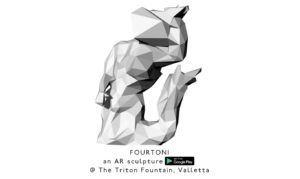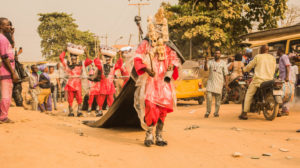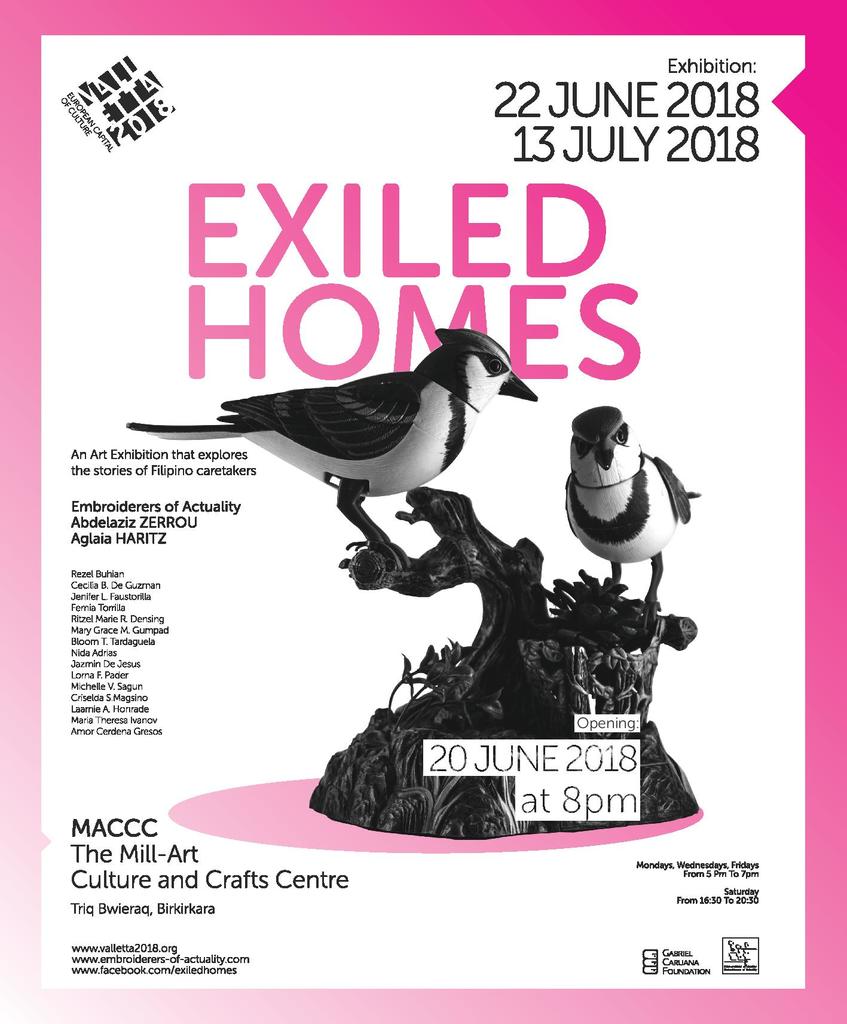Adnan Hadzi presented the boattr.uk computer book during the Mazi Symposium.
The MAZI project is concluding at the end of 2018. To mark the occasion we are inviting you to join us as we celebrate our achievements, share our stories and the lessons we learned, and perhaps most importantly, to discuss what should happen next. The symposium will present case studies from our pilot studies in Berlin, Zurich, London and northern Greece, along with talks by invited speakers. Building on the context of our own MAZI experiences, we will broaden out the debate with perspectives from outside the project.
SYMPOSIUM: Do-It-Yourself Technologies for Action and Empowerment: Stories, practice and perspectives
The MAZI project is developing a toolkit for building local, community wireless networks using Raspberry Pis.
The MAZI EU project is concluding at the end of 2018. To mark the occasion we are inviting you to join us as we celebrate our achievements, share our stories and the lessons we learned, and perhaps most importantly, to discuss what should happen next. The symposium will present case studies from our pilot studies in Berlin, Zurich, London and northern Greece, along with talks by invited speakers. Building on the context of our own MAZI experiences, we will broaden out the debate with perspectives from outside the project.
Themes: #WiFi-networking #RaspberryPi #DigitalArts #CommunityEngagement #Making-Hacking
The symposium (18th October) will present case studies from our pilot studies in Berlin, Zurich, London and northern Greece, along with talks by invited speakers. Building on the context of our own MAZI experiences, we will broaden out the debate with perspectives from outside the project.
Symposium Speakers include:
-
Chris Csíkszentmihályi, Madeira Interactive Technology Institute, and the Rootio Project
-
Janis Lena Meissner, Digital Civics at Open Lab, Newcastle University
-
Denise Allan, Wee Replicators, Edinburgh
-
Elizabeth Wright & Loyane Bianchini, Reverso, São Paulo, Brazil
-
Adnan Hadzi, Digital Arts, University of Malta
-
Jeremy Singer, FRμIT: The Federated RaspberryPi Micro-Infrastructure Testbed. Glasgow University
Programme (in development – check back for updates)
10.00 – 10.30: Welcome and introduction to the MAZI project: Michael Smyth, Edinburgh Napier University.
10.30 – 10.50: Berlin Neighborhood Academy: MAZI Pilot Study presentation: Elizabeth Calderón Lüning
10.50 – 11.10: London Creeknet: MAZI Pilot Study presentation: James Stevens & Mark Gaved
11.10 – 11.30: Break
11.30 – 12.00: The Reverso Project, DIY networking, occupied housing and surburban Favelas in São Paulo, Brazil: Elizabeth Wright & Loyane Bianchini, Central Saint Martins, London.
12.00 – 12.20: Zurich Kraftwerk Housing Cooperatives: MAZI Pilot Study Presentation: Ileana Apostol & Philipp Klaus
12.20 – 12.50: Invited Speaker: Wee Replicators, widening access to digital making: Denise Allan, Wee Replicators, Edinburgh.
12.50 – 14.00: Lunch Break
14.00 – 14.20: unMonastery village interventions in northern Greece: MAZI Pilot Study Presentation: Katalin Hausel & Lauren Lapidge
14.20 – 14.50: Invited Speaker: Adnan Hadzi, Boattr, Digital Arts, University of Malta
14.50 – 15.20: Invited Speaker: Janis Lena Meissner, Digital Civics at Open Lab, Newcastle University, and co-founder of fempower.tech
15.20 – 15.45: Break
15.45 – 16.15: Invited Speaker: Chris Csíkszentmihályi. European Research Area Chair at Madeira Interactive Technology Institute, and director of the Rootio Project, a sociotechnical platform for community radio.
16.15 – 16.40: Invited Speaker: Jeremy Singer. Glasgow University, FRμIT: The Federated RaspberryPi Micro-Infrastructure Testbed.
16.40 – 17.00: Open Discussion: From Do-It-Yourself to Do-It-Together: Perspectives on the future use of community networking technologies for grassroots social impact
17.00 – 19.00: Drinks reception and book launch
Full details about this one-day symposium and associated workshops are here: www.mazizone.eu/mazi-workshops-and-symposium-2018-edinburgh-uk/
ACCESS: please note that the event takes place in the Dissection Room at Summerhall. There is some restricted access, please contact us (email option below) for more details.
Other events (free to attend) include half-day workshops/hackathons
Full details and booking: www.mazizone.eu/mazi-workshops-and-symposium-2018-edinburgh-uk/
The half-day workshops (16th & 17th October) will provide “hands-on” opportunities to try out the MAZI DIY networking toolkit, based around the Raspberry Pi. The workshops will be divided into two groups:
-
Workshop 1 will be for programmers and technical enthusiastswho are interested in finding out more about it all works, and perhaps getting involved in supporting the on-going development of the open-source project.
-
Workshop 2 is for technical novices with an interest in how the technologies can be used in domains such as; education, art & creativity, and civic & community participation.
The MAZI EU H2020 project partners are:
-
NITlab, University of Thessaly, Greece (Project Coordinator)
-
NetHood, Zurich-based non-profit organization, Switzerland
-
Centre for Interaction Design, Edinburgh Napier University, UK
-
Design Research Lab at the Berlin University of the Arts, Germany
-
The Open University, UK
-
INURA Zurich Institute, Switzerland
-
SPC in Deptford, London, UK
-
Neighborhood Academy in Prinzessinnengarten in Berlin, Germany
-
unMonastery, nomadic group, UK & Greece.





